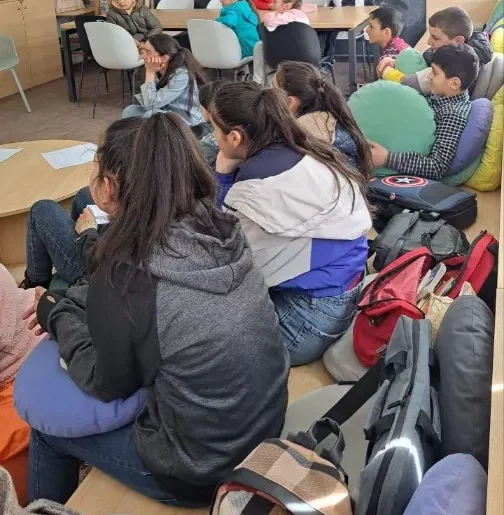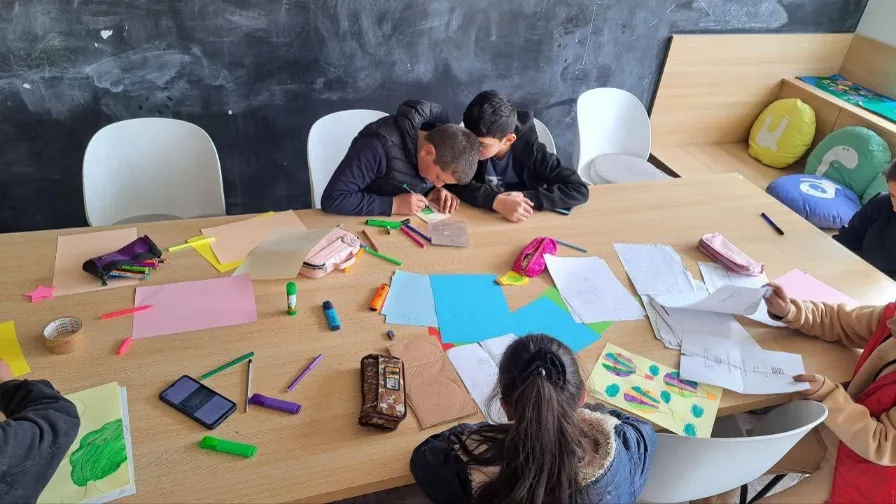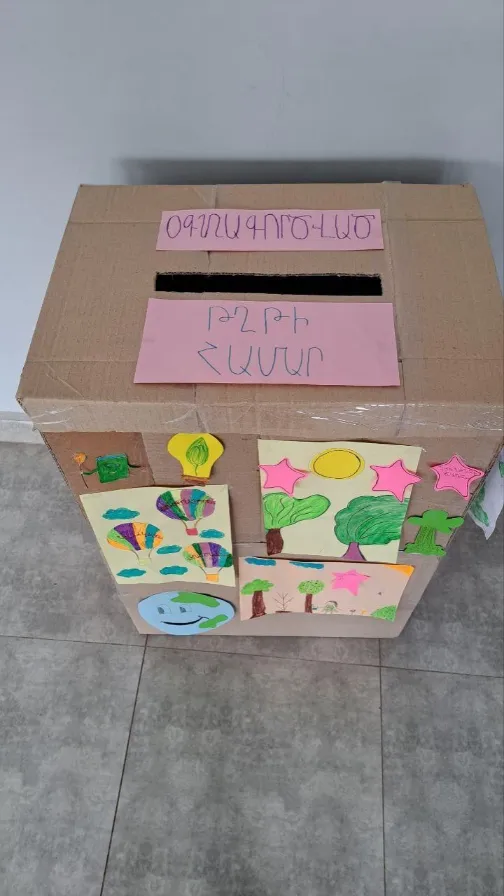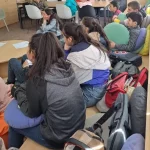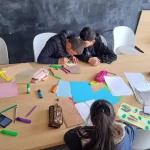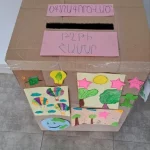Teacher: Melanya Hovhannisyan

Melanya Hovhannisyan
Melanya’s desire to contribute to her country and the next generation was ignited by Teach For Armenia. From the very first day at school, she fell in love with pedagogy and firmly believes teaching is one of the most rewarding vocations. In the past two years, She have taught English in the Armenian village of Drakhtik (small heaven). The work has been tough but fulfilling. Her students, aged 10 to 18, have been hyper-energetic and occasionally challenging. One sixth-grader was particularly challenging: he used to sit on the back of the chair and not only neglect the lessons but also disrupt others. However, with patience and personal connection, he transformed into a diligent student. She also convinced a conservative parent to allow her daughters to participate in school activities.
As a teacher-leader, She has been part of the ‘Teach for All’ network and gained valuable skills through the experience. Based on those lessons, she has conducted seminars in Armenia. In 2022, she completed an Inclusive Education course, receiving funding for a successful student self-reflection project. In a nutshell, teaching is not just her profession; it’s her passion, and she relishes every moment in the classroom.
Overview
Melanya is a teacher in a school in rural school in Armenia. She responded to her students interest in climate change by starting an extracurricular club which provided training in areas connected to climate change and waste management. The students were naturally interested in these issues which affected them, this ensured the project was contextually relevant for the students.
Theory of Change
Students in the village where the project took place were confused about why so much paper was burnt in the local area but were unsure as to whether there was another method of paper disposal. From discussions with the children, Melanya realised that the children had very limited knowledge of waste management and how it related to climate change. This was not surprising as there were no teaching resources available in the local language and the topic was not well integrated into the national curriculum. Through carrying out environmentally focused activities and through learning about climate change issues in a climate club the children reconnected to the nature that surrounded them and discovered the power they have to make a positive impact on sustainable practices in their community.
Approach and Actions
The project was facilitated by Melanya but was a student-led initiative. The students were interested in learning about sustainability and together with Melanya decided upon a three-month training programme. The training programme particularly focused on waste management and recycling but also covered topics as diverse as ecology, pollution and climate change. Each month had set training objectives and complementary practical activities which either raised public awareness of the issues being learnt about or took practical steps to mitigate the discussed issues. The students facilitated the recycling of a large volume of paper and received a financial reward for their efforts, this was spent on sports equipment for them to enjoy.
Impact
When tested, the first cohort of students in the project showed a large increase in climate change knowledge at the end of each monthly training (40%, 60.6% and 43% respectively). Each time the students were surveyed more than 90% of the feedback about the project was positive. A ripple effect was also, observed by Melanya; students actively encouraged other students to take up more sustainable practices and shared their learning of climate change issues. It was also observed that families, particularly fathers, took part in environmentally focused activities with their children.
